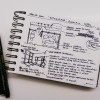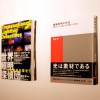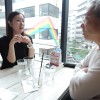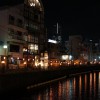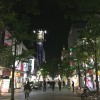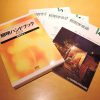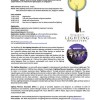Work Style Revolution
Interviewer: Tomohiro Mukaihira




Mukaihira:Today I`d like to talk with you about design and work balance, not as a lighting designer, but as Mr. Mende, the entrepreneur. Recently, the workforce is decreasing with several social issues such as, childcare, nursing care, and overworking to resolve amid calls for work style reform in Japan.
Mende:Do you think you and others your age are being overworked? How many work hours is ideal?
Mukaihira:It seems that many Japanese are being overworked to the point of exhaustion. I think the ideal is 9 to 6 and being able to punch out on time.
Mende: I see. As expected, an 8-hour day. However, what is “punching out on time”? A farmer will get up early in the morning to tend his fields and work into the night fixing and managing tools and equipment. I don`t think they have a punch out time.
Mukaihira: I think there are two types of working style; one is just working for money and two working for self-fulfillment. The former, probably wants a shorter schedule and the later might be willing to work longer hours. What kind of working style did you have in your 20`s and 30`s?
Mende:I`m pretty much a nerd and love working! So I don`t think my style is a good reference. I really love my work!! Before I became a designer I had several jobs, like delivery. At home I wash dishes, vacuum, and I love picking up the house. Working is a very noble way to generate value and merit. There is an old theory: Alienation of Labor. It means one should work productively no matter what the work is. I was an average office worker from age 28 to 39 and I did an obscene amount of overtime!
Mukaihira:This is just my second year of working in Singapore, but after several months here I am still surprised that there is hardly anybody in the office after 8pm. At the end of the day, one after another, everyone just gets ready to go home. Family time is just as important as working. If there is a presentation of a close deadline, of course, some will be working late into the night. But, on average, after 6pm nobody is at their desk, except me.
Mende: In terms of time, density and precision are important. Doodling and rambling are not efficient ways of working. Creative work requires instantaneous force. The amount of overall creativity used in a design project is about 10%. The remaining 90% is what one might call routine work; this is where efficiency and precision come it. I don`t know how many jobs are going to be replaced by AI in the future, but we need to increase the precision of jobs that only people are able to do.
Mukaihira:I think, one reason for long working hours is stringent demands from clients. In Singapore if we are not able to do something as request by the client, it is commonplace to just say no. Clients feel they can say or request anything, so it is actually preferable to indicate no, or one might get walked all over. It is difficult to do business this way in Japan.
Mende:Japanese professionals find it virtuous to carefully respond to each request made by a client. If we speak from the heart to our clients they will respect our work and the time needed to attend to their requests. I won`t work with forceful clients and usually decline these projects. One has to be a responsible worker and professional.
Mukaihira:After starting my career at LPA, one thing I have felt is staff work hours are dense and efficient. Excessive presentations and unnecessary work is strictly advised against. Design is business and working hours are costs. If we are not conscious of this making a profit is difficult.
Mende:At LPA we have a ceiling cap of a 10-hour day. This is all laid out in an operations plan making it unnecessary to work overtime, if managed right. Lately, I am surprised that nobody is in the Tokyo office after 10pm, but this is a good thing!
Mukaihira: How about a sideline business? Maybe somebody wants to work as a graphic designer a few times a week while being a lighting designer 3-4 times a week. Maybe a collaboration like this will bring about new ideas, which I think is important.
Mende:I think we are adapting to a flexible work schedule and environment, but a sideline business, no. We are lighting specialists! This is not such easy work as to be able to juggle it with another career. We have many moms on staff at the Tokyo office and I want the staff, themselves, to think about how they can contribute with the limited time that they have.
Mukaihira:The work style revolution is not just about decreasing hours, it`s not as simple as that. I think it`s more about pursuing efficiency and flexibility in the workplace, while at the same time enjoying ones work and feeling motivated in that environment, this is what is important. I feel I need to rethink my own way of working. What value for the office is coming from my work? What can only I do that is of value for the office? I`d like to keep these questions in the back of my head as I approach my desk at work.





